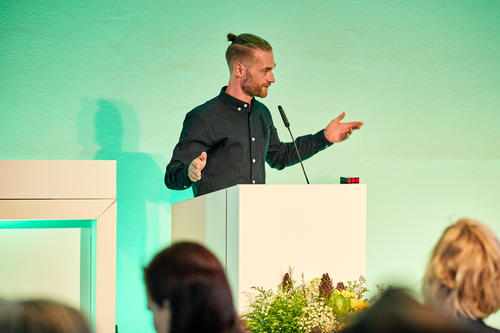Two “Freigeist” Fellows at Freie Universität Berlin
A physicist working on climate models and an anthropologist studying religious minorities in South Asia
№ 273/2019 from Sep 24, 2019
Two researchers have received highly endowed “Freigeist” Fellowships (literally, “free spirit”) from the Volkswagen Foundation for their projects at Freie Universität Berlin. The physicist Niklas Boers and his research group are investigating mathematical methods and machine learning for climate models. He will spend an initial six years working on the project at Freie Universität. The “Freigeist” Fellowship will provide him with around 1.4 million euros of support. The anthropologist Jürgen Schaflechner works with his research group on religious minorities’ political practices in India and Pakistan. The project funding is set at 1.3 million euros for an initial period of five years. Niklas Boers and Jürgen Schaflechner are two of nine successful applicants in Germany to receive “Freigeist” Fellowships. 90 people applied.
Dr. Niklas Boers will come to Freie Universität with his project “Predicting Abrupt Transitions and Extreme Events in the Earth System.” Together with his colleagues he will develop mathematical methods in order to create hybrid models that combine process-oriented models with machine learning technology. The project aims to improve forecasting technology to better predict changes in extreme weather events and potential abrupt shifts in unstable subsystems within the Earth’s climate system. These challenges are increasingly important in the face of climate change.
Dr. Jürgen Schaflechner is coming from the University of Heidelberg to Freie Universität Berlin, where he will work on his project “The Populism of the Precarious: Marginalization, Mobilization, and Mediatization of South Asia’s Religious Minorities.” Focusing on Christian, Hindu, and Sikh minorities in Pakistan as well as Muslim minorities in India, the project explores the reasons behind their marginalization and analyzes the politics that emerge from such precarious conditions. The study hopes to understand how religious minorities unite in solidarity with other, often similarly marginalized, communities and how they seek to present themselves as “the people” entitled to certain rights. This project aims to contribute to a better understanding of populist practices beyond Europe and the United States by including South Asian political landscapes.
The Volkswagen Foundation characterizes its “Freigeist” Fellowship as an award for excellent early-career researchers who are not afraid to take risks and work on projects that fall between, or uniquely combine, established fields of study.


